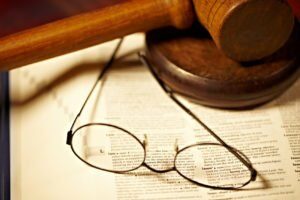Parties to the Discovery of Evidence Case
We have already mentioned that, although it is known as a “discovery of evidence case”, it is not a lawsuit in essence. For this reason, the parties to the discovery of evidence cannot be the defendant and the plaintiff; there are only the parties requesting and against whom the discovery is requested pursuant to Article 402/1 of the CCP.
The Competent and Authorized Court for Discovery of Evidence
If the main lawsuit has been filed, discovery of evidence shall be carried out by the court where the main lawsuit is pending. However, in cases where the main lawsuit has not been filed:
The court that will hear the main case or
It shall be requested from the civil court of peace in the place where the thing to be subjected to discovery or expert examination is located or where the person to be heard as a witness resides.
If the main lawsuit has been filed in the competent court, it cannot be claimed that the court handling the main lawsuit is unauthorized and incompetent in relation to the request for discovery of evidence.
This issue is clearly regulated in Article 401 of our Code of Civil Procedure titled “Duty and Jurisdiction”.
Does a Request for Discovery of Evidence Suspend the Statute of Limitations?
We have stated that the discovery of evidence is known as “discovery of evidence lawsuit” among the legal community and the public, but it is not a lawsuit in the real sense, but a temporary legal protection measure. Therefore, with the filing of this request, the consequences of the filing of the main lawsuit do not arise and therefore the statute of limitations does not stop or interrupt.
Trial Procedure in Evidence Detection Case
Pursuant to Article 316 of our Code of Civil Procedure, the simple trial procedure is applied in the case of discovery of evidence. In the simple procedure, unlike the written procedure, only the petition for lawsuit and reply can be filed by the parties, and the reply and second reply petitions cannot be filed.
Nature of the Judgment in Evidence Detection Case
The determination of evidence is not an enforceable final decision; in other words, it does not contain any performance clause. Since the decision to be rendered upon the request for the determination of evidence will not contain an execution clause and is not enforceable, the person requesting the determination will not be able to apply to the enforcement office with a request to fulfill the requirements of the decision.
Objections and Legal Remedies Against the Decision in the Request for Determination of Evidence
Since the decision to be rendered regarding the request for the determination of evidence does not contain an execution clause and does not constitute an enforceable final judgment, it is not possible to apply to legal remedies such as appeal and appeal against this decision. Only pursuant to Article 403 of our Code of Civil Procedure, the opposing party may appeal within 1 week from the date of notification.
Trial Expenses in Evidence Detection Case
Trial expenses incurred for the determination of evidence may be shown among the expenses in the main lawsuit and may be claimed from the opposing party. In the event that the opposing party loses the main lawsuit, the claim for trial expenses shall be accepted and paid by the opposing party. In addition, in addition to the attorney’s fee to be awarded in the main lawsuit, an attorney’s fee should be awarded in favor of the party who performs the evidence determination procedure through an attorney.

